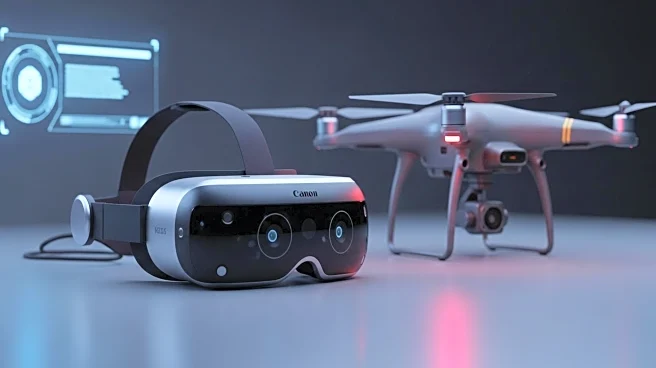What's Happening?
Meta has announced a renewed partnership with Anduril Industries, led by Palmer Luckey, focusing on augmented reality (AR) hardware development. This collaboration includes a $159 million prototyping award for mixed-reality systems, sparking investor scrutiny and regulatory attention. The partnership ties commercial AR technology to military contracts, raising questions about civilian privacy and the implications of private tech companies working closely with defense contractors. The announcement, made on the social media platform X, has generated significant market chatter and debate over the role of corporate partnerships in military technology.
Why It's Important?
The collaboration between Meta and Anduril highlights the growing intersection between consumer technology and defense applications. This partnership could accelerate the development of AR products, potentially blurring the lines between civilian and military use cases. Investors and regulators are concerned about the reputational risks for consumer brands involved in defense deals, as well as the potential for increased regulatory scrutiny. The partnership underscores the strategic importance of AR technology in both commercial and defense sectors, with implications for product roadmaps and funding priorities.
What's Next?
As Meta and Anduril move forward with their partnership, stakeholders can expect faster AR product cycles and increased calls for oversight. Companies involved in similar collaborations may face challenging public relations tradeoffs, balancing innovation with privacy and ethical considerations. The partnership may prompt discussions on the level of scrutiny required for new AR technologies before they reach the market, influencing future regulatory frameworks and industry standards.
Beyond the Headlines
The partnership between Meta and Anduril could have long-term implications for the tech industry, particularly in terms of ethical and legal considerations surrounding the use of AR technology in defense applications. The collaboration may drive innovation in AR hardware, but it also raises questions about the responsibilities of tech companies in safeguarding civilian privacy and ensuring ethical use of their products. This development could lead to broader discussions on the role of technology in national security and the balance between innovation and regulation.









